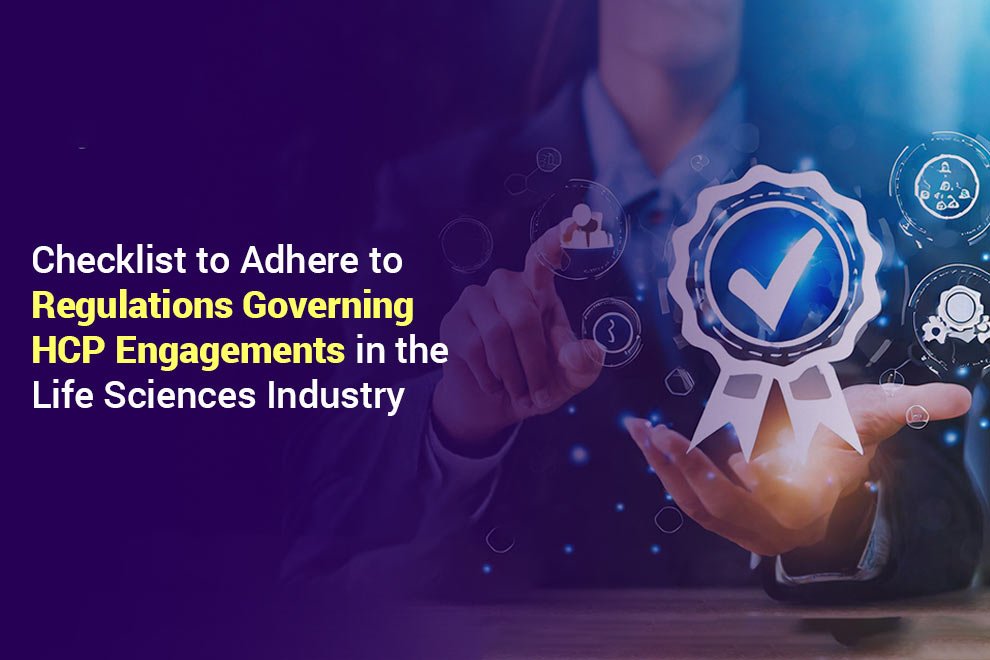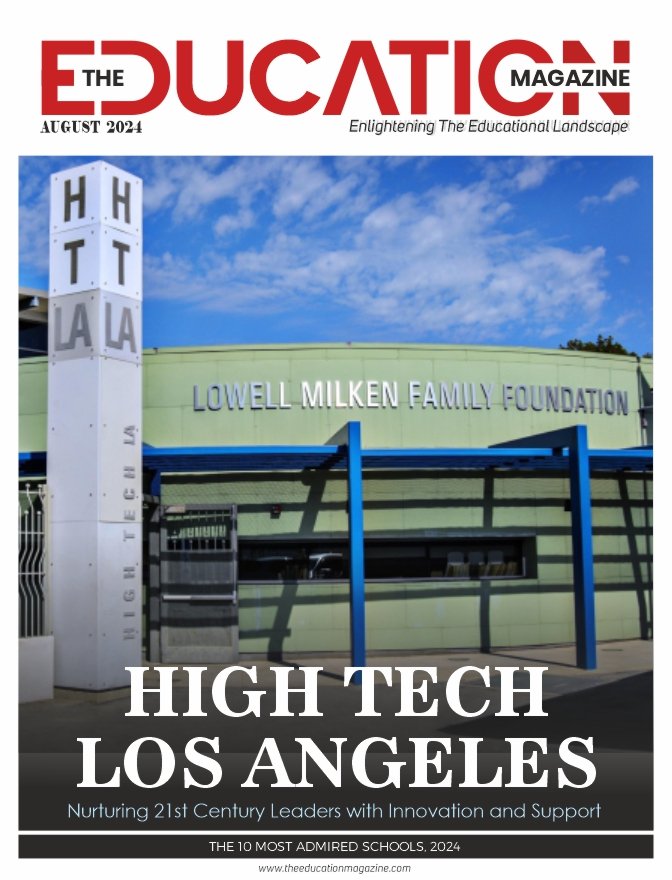Within the life sciences industry, interactions with Healthcare professionals (HCPs) are subject to strict guidelines that ensure ethical dealings and prevent conflicts of interest. Non-compliance with these regulations can lead to severe legal implications, tarnishing reputations, and monetary penalties. In this intricate environment, it is important to have an inclusive checklist that guarantees adherence to all relevant regulations for your HCP engagement basis.
This blog provides guidance that helps life sciences companies manage their interactions with HCPs effectively and efficiently. Explore how leveraging a reliable and reputable HCP engagement platform and incorporating HCP analytics further strengthens your compliance efforts.
1. Establish Clear Policies and Procedures
- Develop Written Guidelines
The foundation of a compliant HCP engagement begins with robust written policies. These guidelines should clearly define the criteria for engaging HCPs, the permissible scope of interactions, and the required documentation for each engagement.
- Regular Policy Review
Regulatory environments are dynamic, and your policies should reflect this. Regularly review and update your guidelines to incorporate new regulatory requirements, industry best practices, and evolving company objectives.
- Documentation Requirements
Clear documentation is vital in demonstrating compliance. Ensure that your policies specify the necessary documents for each stage of HCP engagement, from contracts to proof of performance.
2. Ensure Compliance with the Anti-Kickback Statute (AKS)
- Assess Potential Risks
The Anti-Kickback Statute prohibits offering, paying, soliciting, or receiving any remuneration to induce or reward referrals for services or products covered by federal healthcare programs. Use your HCP engagement platform to evaluate each engagement to ensure it doesn’t violate AKS provisions.
- Objective Criteria for HCP Selection
To avoid potential conflicts of interest, establish transparent and objective criteria for selecting HCPs. Your HCP analytics can help identify patterns that might indicate bias or undue influence in the selection process.
3. Determine and Document Fair Market Value (FMV)
- Set FMV Standards
Establish a standardized process for determining Fair Market Value (FMV) for HCP services. This ensures that compensation is consistent, justifiable, and free from any suggestion of improper influence.
- Regular FMV Assessments
FMV benchmarks should be reviewed and updated regularly to reflect current market conditions. Using an HCP engagement platform with integrated analytics can streamline this process, ensuring that FMV determinations are accurate and up-to-date.
- Document Compensation
Maintain detailed records of how compensation for HCPs was calculated and justified according to FMV standards. These records are essential for audits and demonstrating compliance with regulatory requirements.
4. Conduct Due Diligence on HCPs
- Check for Exclusions
Before engaging an HCP, screen them against exclusion lists, such as the OIG Exclusion List and the FDA Debarment List, to ensure they are not barred from participating in federal healthcare programs.
- Verify Credentials
Ensure that the HCPs you engage are fully qualified. Use your HCP engagement platform to verify their licenses, certifications, and other credentials before entering into any agreements.
5. Establish Clear and Transparent Contracting Processes
- Use Standardized Contracts
All HCP agreements should be formalized in standardized contracts that include necessary compliance clauses. This reduces the risk of ambiguities that could lead to non-compliance.
- Define Scope of Work
Clearly outline the purpose, scope, and deliverables of the HCP engagement in the contract. This ensures that both parties understand their obligations and that the engagement remains within the bounds of regulatory guidelines.
- Obtain Approvals
Ensure that all contracts are reviewed and approved by your legal and compliance departments before execution. An HCP engagement platform with workflow automation can facilitate this process, ensuring that nothing slips through the cracks.
6. Implement Robust Tracking and Monitoring Systems
- Utilize Compliance Monitoring Tools
Leverage an HCP engagement platform equipped with advanced tracking and monitoring capabilities. These tools can help you keep tabs on all engagements, ensuring that activities remain compliant and identifying potential issues early.
- Regular Audits
Conduct regular audits of HCP engagements to ensure adherence to internal policies and external regulations. Analyzing audit data using HCP analytics can reveal trends or anomalies that need to be addressed.
- Expense Monitoring
Monitor all expenses related to HCP engagements to ensure they are reasonable and within the agreed terms. Your HCP engagement platform should allow for detailed expense tracking and reporting to support this effort.
7. Ensure Accurate and Timely Documentation
- Record Proof of Performance
Maintaining records of services rendered by HCPs is crucial for compliance. These records, which may include attendance logs, reports, and presentations, should be stored securely within your HCP engagement platform.
- Expense Documentation
Keep comprehensive records of all expenses associated with HCP engagements, including receipts, invoices, and justifications for payments. This documentation is essential for audits and ensuring that all transactions are above board.
8. Foster Interdepartmental Collaboration
- Cross-Functional Review
Involving multiple departments—such as legal, compliance, medical affairs, and commercial teams—in reviewing HCP engagements can enhance compliance. This collaborative approach ensures that all aspects of an engagement are scrutinized from different perspectives.
- Shared Responsibility
Compliance is a shared responsibility across departments. Ensure that each team understands its role in maintaining compliance with HCP engagement regulations.
9. Provide Regular Training and Education
- Compliance Training
Regular training sessions for employees and HCPs on relevant laws and internal policies are crucial. Your HCP engagement platform should include training modules or integration with learning management systems to facilitate ongoing education.
- Continuous Learning
Update training programs to reflect regulatory changes, emerging risks, and company policies. This proactive approach helps ensure that everyone involved is equipped to handle compliance challenges.
10. Ensure Transparency and Reporting
- Sunshine Act Compliance
The Sunshine Act requires the reporting of HCP payments and transfers of value. Use your HCP engagement platform to track and report these transactions accurately and in a timely manner.
- Regular Reporting
Provide regular compliance reports to senior management and relevant regulatory bodies. Leveraging HCP analytics, you can generate detailed reports that offer insights into your engagement practices and identify areas for improvement.
11. Conduct Regular Risk Assessments
- Identify High-Risk Areas
Regularly assess your HCP engagement activities to identify areas of high risk. Use HCP analytics to pinpoint patterns that may indicate potential compliance issues.
- Mitigation Strategies
Once high-risk areas are identified, develop and implement risk mitigation strategies. Your HCP engagement platform should support this by allowing for real-time adjustments and ongoing monitoring.
12. Document and Manage Conflicts of Interest
- Conflict Disclosure
Require HCPs to disclose any potential conflicts of interest before engagement. These disclosures should be documented and reviewed as part of your compliance process.
- Conflict Management
Implement procedures to manage and mitigate disclosed conflicts of interest. Your HCP engagement platform can help track these conflicts and ensure that they are handled appropriately.
13. Continuous Improvement of Compliance Programs
- Program Review
Regularly review and update your HCP engagement compliance program to reflect industry best practices and regulatory updates. Continuous improvement should be a core aspect of your compliance strategy.
- Feedback Mechanism
Establish a feedback mechanism to capture and address concerns related to HCP engagements. This can help identify areas for improvement and ensure that your compliance program evolves with the industry.
14. Implement Effective Remediation Processes
- Identify Non-Compliance
Use monitoring tools and audits to detect non-compliance promptly. Early detection allows for swift corrective action, minimizing the potential for regulatory scrutiny.
- Corrective Actions
Develop and implement corrective action plans to address non-compliance issues. Document these actions within your HCP engagement platform for future reference and audits.
- Documentation of Remediation
Keep detailed records of all remediation actions taken, including timelines and outcomes. This documentation is essential for demonstrating your commitment to compliance.
Conclusion
Adhering to regulations governing HCP engagements in the life sciences industry requires a comprehensive approach, combining clear policies, robust tracking, and continuous improvement. Leveraging an HCP engagement platform, along with HCP analytics, can significantly enhance your ability to manage these engagements effectively, ensuring compliance with all relevant regulations.
By following the checklist outlined in this blog, life sciences companies can foster ethical relationships with HCPs while minimizing the risk of non-compliance. The right tools and a commitment to ongoing education and collaboration are essential to navigating the complexities of HCP engagements in today’s regulatory environment.
Also read: What is CCNP Enarsi 300-410?










